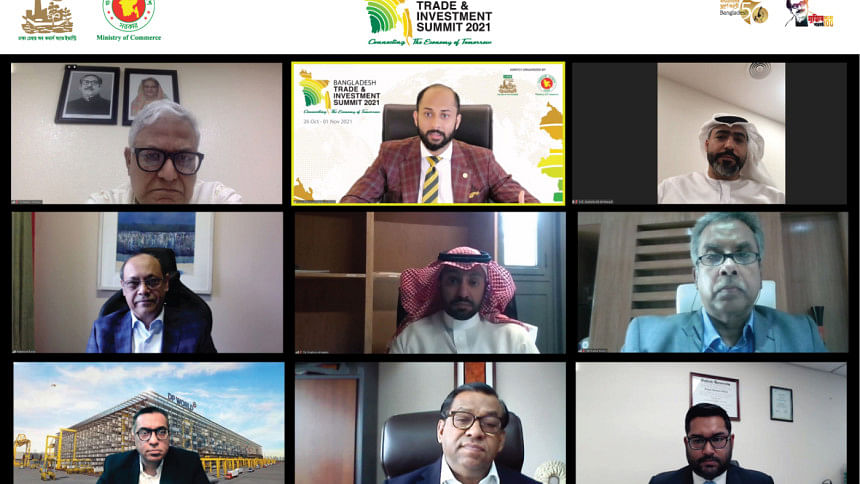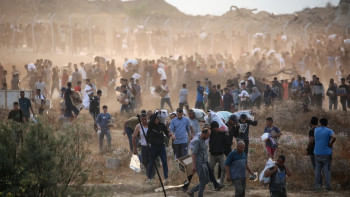Harness potential of halal goods export to Middle East: experts

Bangladesh has been unable to develop its halal business outreach as the industry's limited infrastructure makes it difficult to fully utilise the potential of Middle Eastern markets, speakers said at a webinar yesterday.
Besides, technological know-how and financial cooperation are needed to set up joint venture halal certification and testing centres, they said.
The speakers also discussed how Bangladesh's trade imbalance with countries in the Middle East is increasing due to the lack of bilateral or multilateral free trade agreements.
The commerce ministry and Dhaka Chamber of Commerce & Industry (DCCI) jointly organised the webinar, styled "Shaping Business Landscape: Economic Cooperation of Middle East & Bangladesh".
The Bangladesh Standards and Testing Institution (BSTI) is going to issue halal certification for processed products, particularly processed foods, to facilitate such exports.
The standards agency will be the second organisation in Bangladesh to award halal certification for locally made products while the Islamic Foundation Bangladesh is already issuing such certificates.
The BSTI, an agency of the industries ministry, added the provision of halal certification to the BSTI Regulations, 1989.
The BSTI aims to boost halal exports to the Middle East and other Muslim-majority regions.
The global halal market is worth more than $1 trillion annually, and the Islamic Foundation has so far issued halal certificates to 130 local companies for more than 700 products.
DCCI President Rizwan Rahman said the Middle Eastern market remains largely untapped by Bangladeshi entrepreneurs.
In his brief presentation, Rahman said Bangladesh's limited diversification of garment and other export products are major challenges for export growth in Middle Eastern countries.
Mashiur Rahman, the prime minister's economic affairs adviser, said Bangladesh's economic transformation has been very fast.
"Our growth has been stable and steady," he added.
Rahman also underscored the need to improve chamber-to-chamber relations to boost trade.
K Mahmood Sattar, chairman of RSA Advisory and RSA Capital, said Bangladesh is a good place for Middle Eastern nations to invest in the halal products sector.
Abdulla Ali Al-Hamoudi, ambassador of UAE to Bangladesh, said collaboration and partnership would help expand bilateral trade.
"We want to expand business and deepen our engagement through strategic partnerships," he said.
To strengthen bilateral trade relations, a Bangladesh-UAE business council could be formed in the near future, Al-Hamoudi added.
Tajwar M Awal, director of Lal Teer Seed, said they are currently exporting seeds to Middle Eastern countries, many of which could invest in the local agriculture sector.
Qatar's vegetable imports total about $1.5 million per year and Bangladesh could tap into this market while Oman has potential in this regard as well, he added.

 For all latest news, follow The Daily Star's Google News channel.
For all latest news, follow The Daily Star's Google News channel. 



Comments